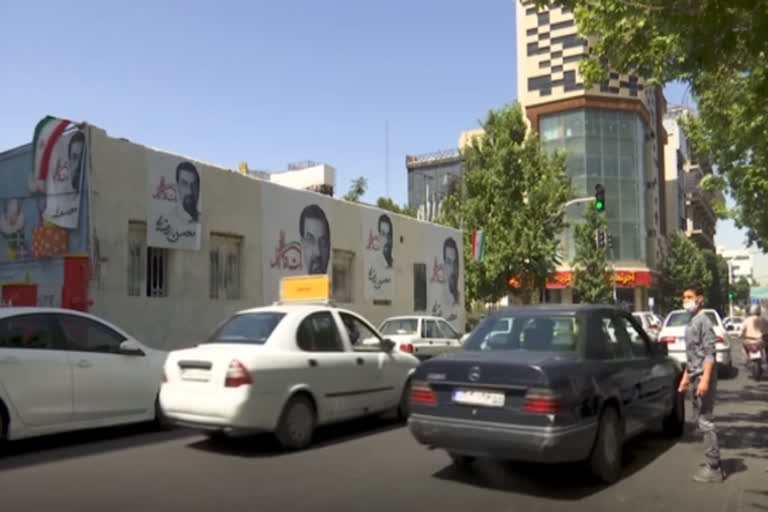Tehran:Iranians this week are preparing to vote in — or boycott — a presidential election that many fear will only underscore their powerlessness to shape the country's fate. Hopefuls are running to replace the term-limited President Hassan Rouhani, whose promises of a bright economic future withered as Tehran's 2015 nuclear deal with world powers collapsed. The backlash of disappointment in Rouhani's relatively moderate administration has given hard-liners an edge this time, analysts say, even as the U.S. and Iran now negotiate a return to the landmark accord.
Iran's clerical vetting committee has allowed just seven candidates on the ballot, mixing prominent reformists and key Rouhani allies. The presumed front-runner has become Ebrahim Raisi, the country's hard-line judiciary chief who's closely aligned with Supreme Leader Ayatollah Ali Khamenei.
As Iran reels from the coronavirus pandemic, global isolation, sweeping U.S. sanctions and runaway inflation, the mood among potential voters appears to be one of apathy. Tehran, the vast and churning capital, has been eerily quiet in the days leading up to the poll, with some Raisi campaign posters scattered around the city and none of the huge rallies that drew roaring crowds to the streets during past election seasons.
Read:Outgoing Iran president, a debate target, defends his record
With just a few days to go until the election, The Associated Press spoke to Tehran residents about their hopes and fears. Few expect the vote to ease the nation's sense of crisis. Some say they'll vote for Raisi, known for his televised anti-corruption campaign, to protest Rouhani's failures. Others are undecided or plan to boycott the vote, saying they have no trust in the government to improve their lives.
"I've watched the presidential debates but didn't see any of them offer real solutions," said 30-year-old Masoumeh Eftekhari, six months pregnant and strolling through the shop-lined promenades of Tehran's jam-packed Grand Bazaar. She pointed with astonishment to the skyrocketing prices of baby clothes. "It disappoints me, so I cannot say which candidate is my favorite. At the moment, none." Consumed by fear of future economic decline, Fatemeh Rekabi, a 29-year-old accountant, also believes there's no candidate worth voting for.
"I don't have any trust in the candidates because I don't know what is going to happen next. What if the situation gets worse?" she asked. "Our people wouldn't survive."
Sasan Ghafouri, a 29-year-old who studied to become a lab technician but is now grinding out a living selling clothes at a Tehran mall, said he's exhausted from work and disillusioned with electoral politics that deliver nothing. "I come here at 9 in the morning and work until 9-10 p.m., day in, day out. When I don't have any time left to have fun or study, continue my education and pursue my dreams, what is the meaning of life?" he said. "At the moment, I can't think about my dreams."
Those staking their hopes on Raisi say they're desperate for any change in their fortunes after watching their savings evaporate as the rial collapsed under President Rouhani.
"Rouhani's administration was full of disappointment and incompetence. I deal with finances because of my job and have witnessed the adversity facing our citizens everyday," said Ali Momeni, a 37-year-old accountant at an upscale mall in west Tehran. He said he'll throw his vote behind Raisi, who he hopes will "hire a powerful team of economic advisers (to) ... improve the country's situation."
Loqman Karimi, a 50-year-old porter pushing laden carts through the narrow alleys of Tehran's Grand Bazaar, also said he'll support Raisi not for his airy promises but for concrete things he'd already done as judiciary chief.
